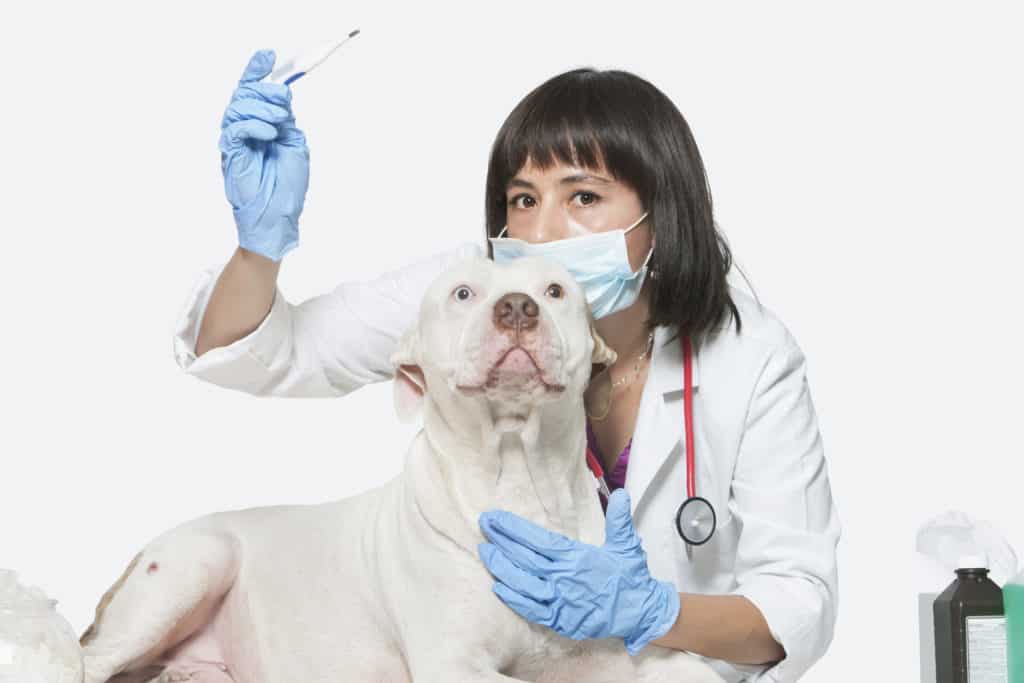An investment in your education as a veterinary technician can transform your outlook, skill level, interests and earning ability while providing qualifications for working in a rewarding field. In as little as two years, you can earn credits toward an associate degree. The courses that you can find online teach you the skills that can qualify you to enter the job market as a veterinarian technician. You can keep your job and earn credits as you have time to study and learn.
Choosing a Degree Program
Online schools make it easy for you to choose a degree by enrolling in a veterinarian tech program. It organizes a course of study that teaches you everything that you need to know. When you complete your associate degree, you have the qualifications to obtain a license as a Licensed Veterinary Tech (LTV) in a veterinary clinic. The work requires you to get your hands dirty, but the Bureau of Labor Statistics (BLS) show that it provides financial rewards.
Your college courses teach you how to do the things that you see veterinary technicians in your vet’s office perform. With training, you can assist with procedures that include emergency and critical care, dentistry, anesthesia, zoological medicine as well as routine functions. You can have confidence that your college training prepares you to work in a veterinary office with the knowledge that you learn in a two-year associate degree program.
Whether you already have a degree in another field or no academic background, you can choose a program that can let you become a veterinary tech in two years. Employment opportunities continue to expand with a projection by BLS to grow by 20 percent until 2026. The rate of growth in employment exceeds that for the average of all job classes. The median annual wage, the salary that stands in the middle of the pay range with as many people earning more as well as less, amounted to $34,420 in early 2018.
Reviewing the Courses to Study
The Houston Chronical describes the coursework in a typical vet tech associate degree program as a comprehensive regimen filled with information that can make you an excellent professional. The approximately 20 courses that you must take in a two-year program focus on topics essential in caring for people’s pets. You learn about animal care and the sciences that go into it, including chemistry, microbiology, parasitology, nutrition, pharmacology, physiology and radiology. Mathematics, medical testing, instrumentation, lab procedures and surgical assisting help equip you to meet the job requirements. Every veterinary clinic relies on communications with pet owners, and it needs money to function successfully. Your coursework introduces you to business management as well.
Working with Professionals
On the job, you work under the supervision of a licensed veterinarian. As a qualified vet tech, your work may resemble that of a veterinary technologist, someone who holds a bachelor’s degree from a four-year college program. They probably earn more money than you because of a higher educational level, but both of you work under a veterinarian’s supervision.
Getting a Head Start
Your training as a veterinarian tech starts at the post-secondary level which means that you must complete high school before you can earn a degree. As a science-based career, it requires you to have a deep interest in the field. As soon as you have access to science courses in high school, you can get a head start by choosing to take them. High school courses in biology, chemistry and math reflect your interest in science and help prepare you for college-level courses. You can get practical experience as a vet tech by working part-time at a pet shop, animal clinic, zoo or your local humane society.
Listening to Someone on the Job
Through an interview with an LVT, you can get a glimpse into a day in the life of someone who does a job that you hope to do one day. At vet clinics, animals that come in have an illness, an injury or a need for a general checkup that requires medical attention. Some of the work in a clinic requires cleaning cages, wiping down tables, sweeping floors, sterilizing instruments and cleaning up accidental messes that the animals make. She assists her vet by helping calm the animal during an exam and by getting the medications that a vet requests. In surgery, she helps prep an animal, start an IV and monitor the anesthesia.
For cases that do not require a vet’s attention, she may give an injection or change a bandage. While she already holds a four-year degree as a school teacher, she chose to follow her heart and go back to school to become a vet tech. Her advice to you includes getting your degree and a license as well. Even without any training, you may find an animal hospital that welcomes volunteers, and you can get a start that way. She maintains that the hands-on experience that you get there can come in handy when you start your college program and make you a better tech on the job as well.
Choosing a Course of Study
The sciences that support veterinary medicine require years of study if you choose any one of them. Your path to becoming a vet tech becomes easier when you choose a veterinary tech associate degree. Colleges have prepared a program that gives you the essential knowledge so that you do not have to figure it out for yourself. By enrolling, attending class, doing the work and participating in activities with other classmates, you can become a college graduate in a field that you love.
Related Articles
What Degree Do You Need To Be A Veterinarian
